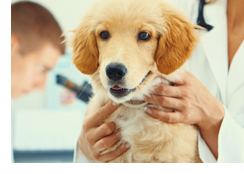
Uh oh! You were having a lovely cuddle with your pet when you felt a small lump on their skin… what could it be, and does it warrant a vet visit? Here’s what to do when there are skin lumps in pets!
Types of skin lumps
Lumps on your pet’s skin may be areas of localised infection or inflammation, cysts or tumours.
Skin tumours are most commonly seen in middle- aged to older pets, however, some tumours, such as histiocytomas and mast cell tumours, can develop in younger pets too.
Skin tumours can be benign (i.e. not spreading or causing your pet to become unwell) or malignant (aggressive tumours that can spread around your pet’s body and cause other problems).
Should you just monitor your pet’s lump or get it checked?
It’s best to have any new lump assessed, especially if it’s growing or causing irritation to your pet. In the case of malignant tumours, prompt diagnosis and treatment will improve the odds of a successful outcome.
Our vets will begin by assessing your pet’s lump visually, as certain lumps (such as skin tags) can have a distinctive appearance. If your pet is amenable, we may be able to collect samples from their mass for analysis during the consultation, using a technique called a fine needle aspiration. This involves using a needle to collect material from the lump, and examining it under the microscope for evidence of bacteria, inflammation or distinct tumour cells.
Otherwise, we will discuss the option of a surgical biopsy to send a sample of the lump or the entire mass away to the pathology laboratory for testing.
Get the jump on lumps and bumps with prompt Vet checks with Dr Peter, Dr Dylan or Dr Chantal for your pet!
Find more interesting articles and Pet Doctors news on our Facebook and Instagram pages
If you would like to make a booking with us you can now book online!

